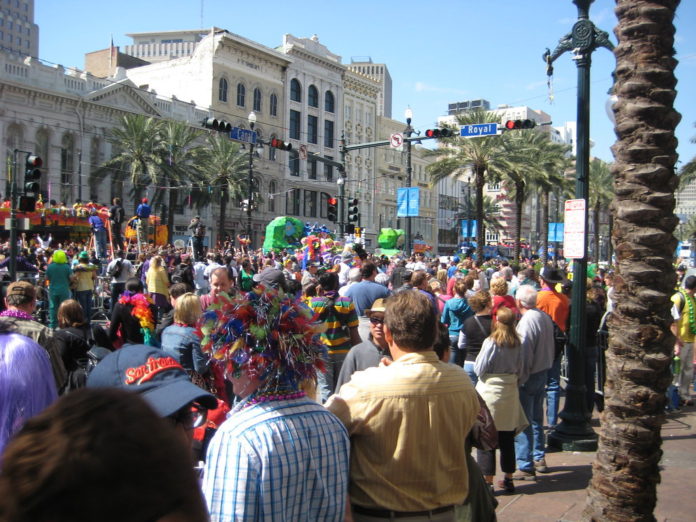
Grace Newton
New Orleans’ biggest party of the year will be pulling back due to COVID-19. While not necessarily cancelled, the removal of parades and other restrictions are forcing the natives to take creative measures.
Mardi Gras, or Fat Tuesday, culminates the Carnival season and acts as one last holiday prior to the beginning of Lent. With a varying calendar date, this year’s Mardi Gras is scheduled for Feb. 16. While the origins of Mardi Gras in the United States are disputed, New Orleans hosts what is arguably the most famous celebration in the US, typically consisting of parades, courts, parties, and general revelry. However, in order to limit the spread of COVID-19, much of the celebration has been restricted or modified this year.
In a typical Mardi Gras season, there are over 70 parades in New Orleans and the surrounding areas, put on by the various krewes, or organizations that put on parades and shows for festival celebrations, mostly associated with Mardi Gras. All parades were unsurprisingly cancelled this year, leading natives to form the “Krewe of House Floats.” Over 3,000 houses throughout the city have been decorated to look like floats, in efforts to keep the spirit of Mardi Gras alive.
The krewe created a map for revelers’ drive-by tours, and many who typically work as Carnival artists have found temporary income by taking house float commissions. Owner of Stronghold Studios Coco Darrow has used orders to keep the business alive.
“Before the Krewe of House Floats, we had nothing,” Darrow said to CBS WWL-TV. “There were no jobs for months and we were barely surviving. We were about to close our doors.”
While the cancelled parades remove a large element of Mardi Gras, New Orleans has also imposed restrictions for the week leading up to Mardi Gras. All bars, including those that operate as restaurants, will be closed from Feb. 12 until Ash Wednesday, on Feb. 17. Liquor sales in the French Quarter will be banned and Bourbon Street, the heart of parties, will be closed off from 7 p.m. to 3 a.m. The city will also fence off the Clairborne Underpass, an area where many large gatherings are usually held.
The new modified rules were prompted by large gatherings in the French Quarter during Super Bowl weekend. Photos from that time demonstrated that some revelers still planned to celebrate as usual, causing New Orleans Mayor LaToya Cantrell to take action.
“To those who are upset about these restrictions, know that when it comes to the health of our people, I’d rather be accused of doing too much than not enough,” Cantrell said in a tweet.
Despite the restrictions, the mayor’s office has assured citizens that Mardi Gras is not cancelled, but it will be different. Some traditional balls will go on as planned with social distancing requirements in place, as the invitation-only policy makes attendance monitoring possible.
This is not the first time Mardi Gras festivities have been cancelled. Since 1857, parades and more have been cancelled 13 times. The most recent cancellation was in 1979, due to a police union strike, making this the first cancellation in 42 years.







